Reportage
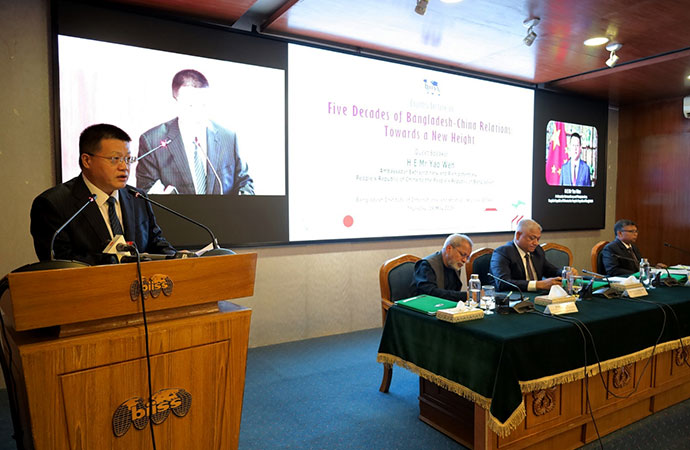
Chinese Commerce Minister to lead over 100 investors later this month
Chinese Ambassador to Bangladesh Yao Wen on Thursday said the visit of the largest-ever business delegation in Bangladesh from China, led by Chinese Minister of Commerce Wang Wentao, later this month would send a 'strong signal' of openness, cooperation and mutual benefit, and will elevate the Bangladesh-China economic and trade relations to a new level.
"We are confident that this visit will send a strong signal of openness, cooperation and mutual benefit, and will elevate China-Bangladesh economic and trade relations to a new level," he said at a programme here, adding that Chinese Minister of Commerce will lead more than 100 Chinese investors to visit Bangladesh at the end of this month.
During the visit, the two sides will co-host a trade and investment exchange event, where hundreds of Chinese and Bangladeshi enterprises will engage and explore more cooperation opportunities.
Ambassador Yao said the 15th meeting of the Bangladesh-China Joint Economic and Trade Commission will be held to agree on concrete measures to further our economic and trade cooperation.
Mangoes, Hilsa to Hit Chinese Market Soon
He said they are also accelerating the exportation of Bangladeshi mangoes to China.
By early June this year, the Ambassador said, the first batch of fresh mangoes will be on the Chinese market.On top of that, he said, procedures for importing Bangladeshi jackfruit and guava are also ongoing.
"We hope that Bangladesh can soon open up Hilsa exports to China-after all, Chinese foodies can't wait to enjoy this delicious fish on their dining tables," said the Ambassador.
As more of Bangladesh's quality agri-products make their way to China, and as more Chinese companies bring investment and innovation to this vibrant land, the Ambassador said they will absolutely see something incredible happen!
"Bangladesh's industries will grow stronger, supply chains will become more robust, and-most importantly-people's lives will be better with new opportunities and greater prosperity," he said, adding, "This is what we could do together, for our shared future."
The Ambassador said China's support for Bangladesh's development is a genuine and straightforward commitment. "It will always remain unchanged regardless of shifting circumstances."
He said China is the largest investor in Bangladesh since the formation of the interim government.
China has granted zero tariff treatment to 100% of Bangladeshi taxable items exported to China and promised to extend this preferential policy to 2028, two years after the graduation from the LDC status.
Since last August, over 15 Chinese companies have signed investment agreements with Bangladesh, with a total intended investment of around 400 million USD.
More than 30 companies have signed letters of investment intent with the Chittagong Chinese Economic and Industrial Zone.
China opposes all forms of terrorism
Describing India and Pakistan as China's neighbours, Ambassador Yao said China opposes 'all forms of terrorism' and calls for an impartial investigation at an early date, noting that tensions between India and Pakistan continue to escalate.
"We urge both sides to act in the interest of peace and stability, stay calm, exercise restraint and refrain from taking actions that may further complicate the situation," he said.
Ambassador Yao said India and Pakistan are and will always be each other's neighbors. "They're both China's neighbours as well."
He mentioned that India launched military strikes on targets in Pakistan on the early morning of May 7 and China finds that "regrettable" and is "concerned" about the ongoing situation.
Ambassador Yao said the world today is full of turmoil, instability and uncertainty. "No matter how the international landscape may evolve, China will stand firm on the right side of history and on the side of human progress, serving as the most stable, certain and peaceful force in the world," he said.
He noted that there are also ongoing negotiations between the United States and other economies, and pointed out that compromise does not earn respect and only by holding firm to principles and fairness and justice can countries safeguard their interests.
Ambassador Yao said China stands ready to work with Bangladesh and all parties to deepen mutually beneficial cooperation, enhance coordination and jointly resist unilateral protectionism and hegemonic bullying practices, in order to uphold free trade and multilateralism and promote an inclusive economic globalisation.
He said they need to defend international fairness and justice and China will continue to pursue peace, development, cooperation and mutual benefit and build a peaceful, safe, prosperous, beautiful and amicable community with a shared future with neighboring countries.
The Ambassador said China stands ready to support Bangladesh on matters including cooperation in South Asia, regional connectivity, the Rohingya issue and to coordinate positions in the United Nations and other multilateral forums to release the positive effects of China-Bangladesh friendship to the region and the world, maintain peace and stability in South Asia, and safeguard the legitimate rights and interests of developing countries.
Moving forward, he said, they will walk side by side on the path toward their respective national modernisation.
Guided by the consensus reached by the two leaders, the envoy said, China is ready to work with Bangladesh to start anew from the 50th anniversary, to renew their traditional friendship, strengthen strategic communication, deepen practical cooperation, promote people-to-people bonds and advance high-quality Belt and Road cooperation.
"Let's work together to lift the comprehensive strategic cooperative partnership to a new level, and embark on the next golden 50 years of China-Bangladesh relations," said Ambassador Yao.
Not involved in humanitarian corridor issue
Ambassador Yao said China is not involved in the "so-called humanitarian corridor" issue, stressing that China always respects sovereignty and territorial integrity of any country.
"For the corridor issue - so called humanitarian corridor, I should say China is not involved. As far as my understanding is concerned, it is an initiative by the United Nations agencies to provide humanitarian supplies to Rakhine State for the people affected by the conflict, China is not involved in this matter," he said while responding to a question after delivering a country lecture.
The Ambassador said they are not interfering in any internal affairs of any country and hoped Bangladesh and Myanmar can properly solve the issue over the Rohingya through peaceful dialogue, and promote the process of repatriation.
Responding to a question on the updates of Teesta River Comprehensive Management and Restoration Project (TRCMRP), the Chinese envoy referred to the joint media statement issued after the bilateral meeting between Chief Adviser Prof Muhammad Yunus and Chinese President Xi Jinping where it was mentioned that Bangladesh welcomed Chinese companies to participate in the project.
"I should say China remains ready. We are willing to offer our help. Now it is up to Bangladesh to make a decision whether Bangladesh wants to move forward," said Ambassador Yao.
Referring to whether it can be done through bilaterally, trilaterally or international consortium, it is truly Bangladesh's decision how it will proceed with this project.
"China will respect the decision made by Bangladesh. I wish this project can be started as soon as possible. That's what I want to say," said Ambassador Yao.
Earlier, delivering his country lecture, the envoy said China champions a multi-polar world where sovereign equality is paramount. "Every nation, regardless of size, strength or wealth, deserves full respect for its sovereignty and dignity."
He said no country shall interfere in others' internal affairs, and all states have the fundamental right to independently choose their social systems and paths of development, said Ambassador Yao.
"China and Bangladesh have always respected each other. As an independent sovereign state, Bangladesh must be free from external interference," he said, adding that the Bangladeshi people have the right to determine their own path of development.
The envoy said China has consistently and firmly supported Bangladesh in upholding its independence, sovereignty, and national dignity, as well as in pursuing a modernization path suited to its national conditions.
In turn, he said, Bangladesh has steadfastly upheld the one-China principle, rejected the so-called "Taiwan independence," and adhered to the principle of non-interference in others' internal affairs.
The envoy said China-Bangladesh relations have withstood the test of international turmoil and evolving political situations in Bangladesh, and has since gained strong momentum.
"The secret ingredient is equality and mutual respect. These principles will continue to be enshrined in our future relations," he added.
Bangladesh Institute of International and Strategic Studies (BIISS) organised the country lecture on 'Five Decades of Bangladesh-China Relations: Towards a New Height' at the BIISS auditorium.
BIISS Director General Major General Iftekhar Anis delivered welcome remarks while its Chairman AFM Gousal Azam Sarker chaired the session. Executive Director of the Centre for Alternatives, Bangladesh Imtiaz Ahmed made a presentation.
Senior officials from different ministries, serving and retired military officials, diplomatic missions, media, researchers, academicians and students from various universities, representatives from different think tanks, international organisations, participated in the country lecture and shared their opinions, comments, suggestions, and observations during the open discussion session.
In the Lecture, participants expressed their firm belief that as Bangladesh progresses toward its development goals and China continues its global outreach, the next chapter of this relationship promises even greater collaboration and mutual prosperity.
By embracing innovation, trust and shared vision, they said, Bangladesh and China can forge a future that benefits their peoples and the broader Asian region.






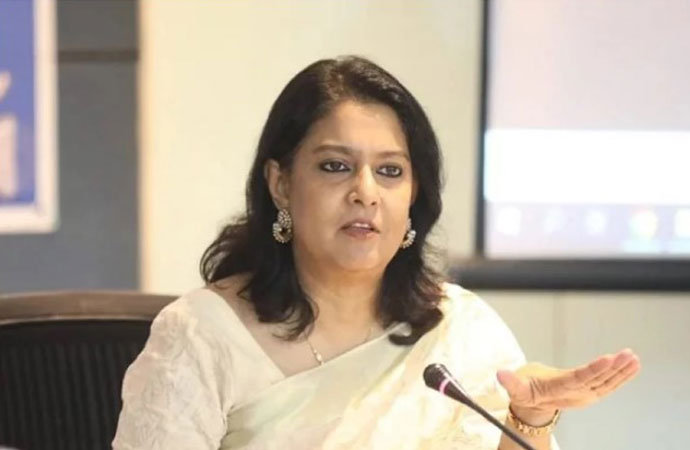


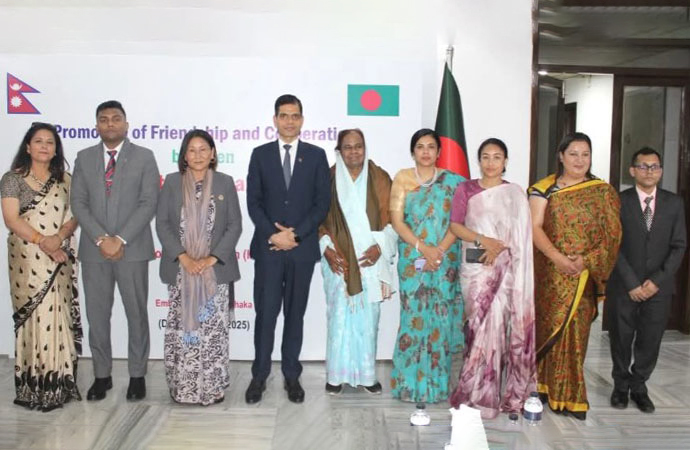




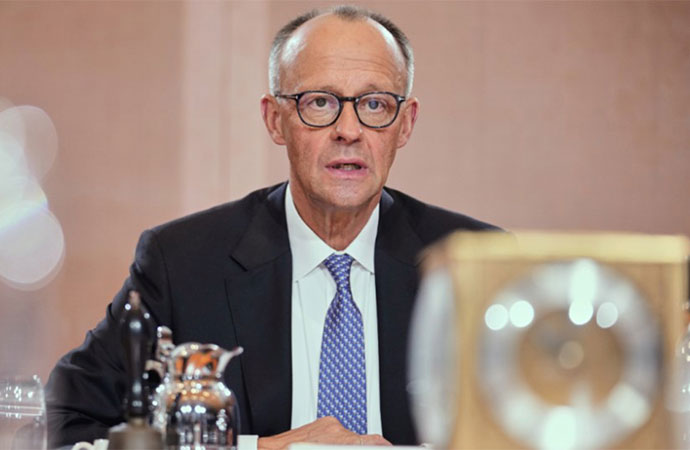
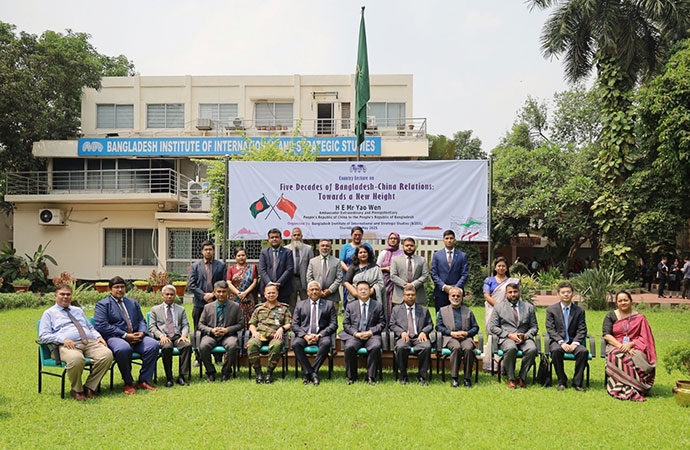



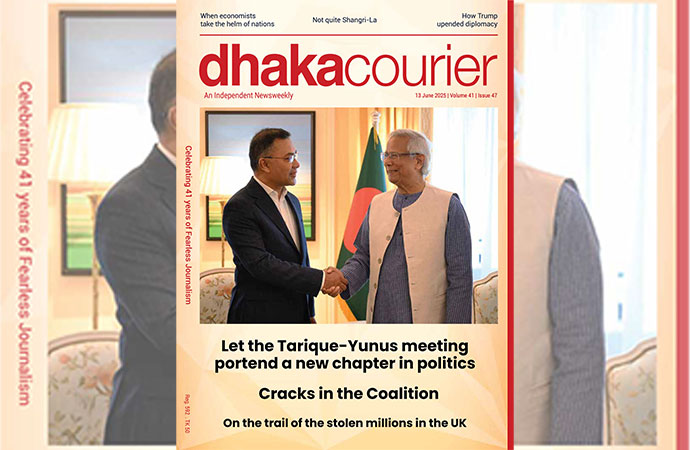
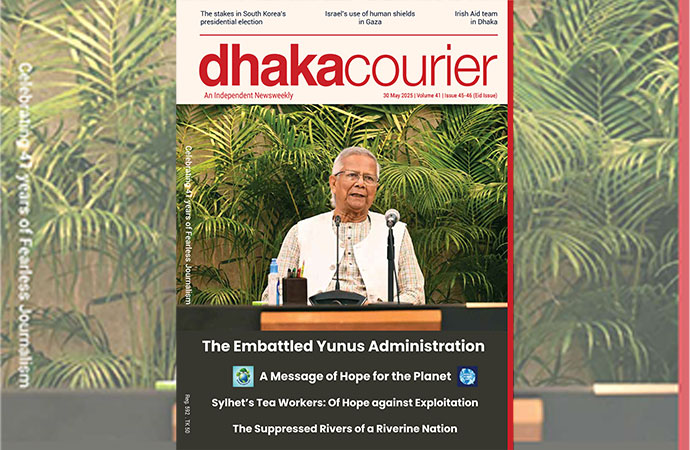
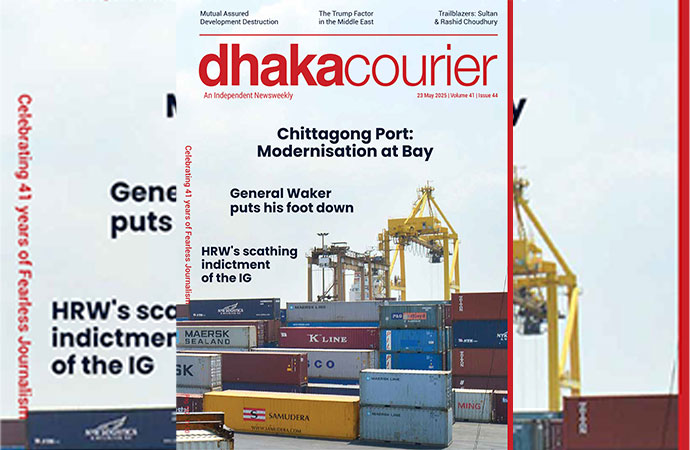



Leave a Comment
Recent Posts
Enayetullah Khan to represent ...
Enayetullah Khan, Editor-in-Chief of United News of Bangladesh (UNB), ...
The tragedy in Ahmedabad touch ...
Air crashes are inherently international incidents, and the emotions t ...
Asset recovery a key focus; breakthroughs from talks ..
'It'll inspire youths to build Bangladesh they dream ..
UK envoy Sarah Cooke happy with Yunus’ visit to Brit ..
Prof Yunus honoured with prestigious Harmony Award b ..